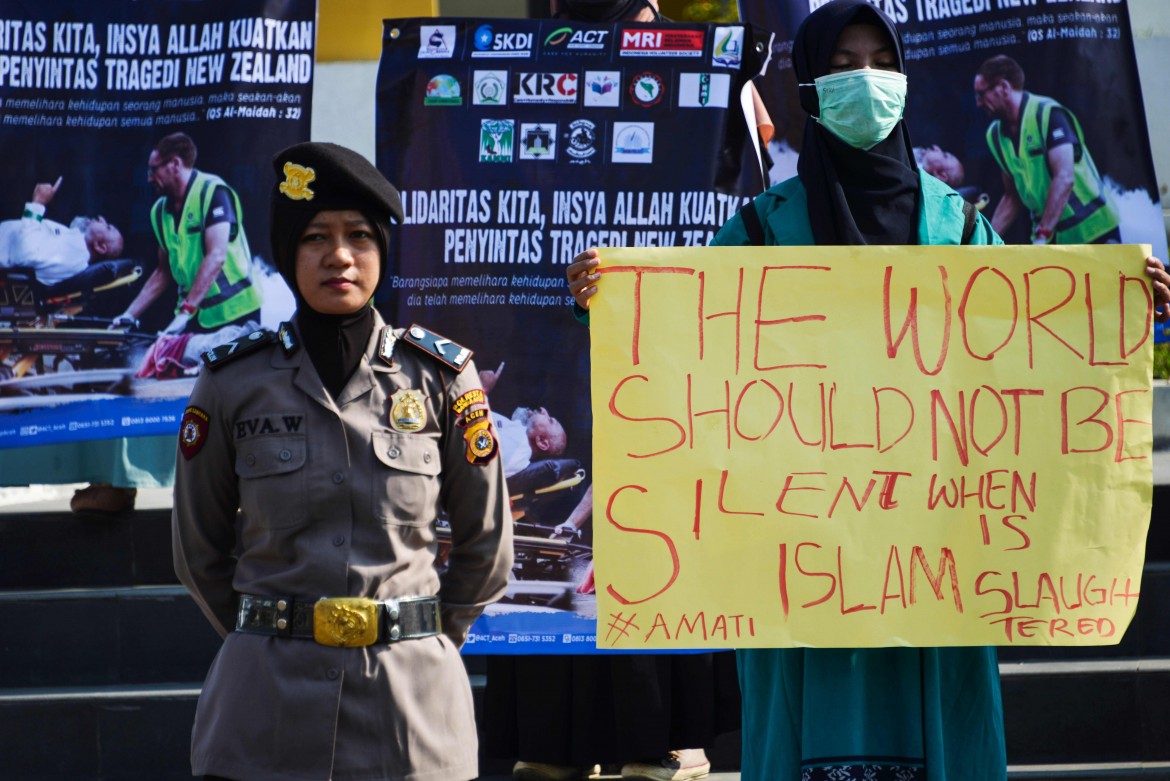Analysis
It’s not just Christchurch – violence against Muslims is getting worse
In Europe, Muslims are the targets of discrimination, verbal assault, physical attacks, property damage and murder. Signs of intolerance toward Muslims have been recorded across the European Union, according to large surveys.

A little over a year ago, a number of Islamic communities living in Europe denounced the fact that, for some time, they’ve felt a negative atmosphere around them, an atmosphere that reeks of Islamophobia.
It is abundantly clear that they were not exaggerating. To reach that conclusion, we don’t even need to take the monstrous terrorist attack perpetrated in Christchurch by the white supremacist Brenton Tarrant as evidence. There have been plenty of attacks on mosques and physical attacks and insults against Muslims living in the Old Continent recently.
Those committing such attacks invoke many different pretexts: revenge for the bloody terrorist attacks that have been seen in the European capitals, or the fear—unfounded, but stoked up to a frenzy nonetheless—of the far-fetched prospect of the ethnic replacement of the local populations by migrant “invaders.” But they are also much more banal affairs, resulting from a reaction of hostility toward ordinary citizens (especially women) who are guilty only of the crime of showing their origins and their religious faith through the clothes they wear, aspects which end up weighing against them in the most ordinary of tasks, such as when looking for a job.
A survey on minorities and discrimination conducted in 2017 by the European Union Agency for Fundamental Rights found that 31% of the Muslims looking for employment had been discriminated against over the preceding five-year period.
The wave of immigration that began in 2015 was one of the main factors that fueled xenophobic attitudes. On Saturday, the German Interior Ministry published its data on the crimes committed in 2018 against migrants and refugees: a total of around 2,000 criminal acts, a number that includes verbal abuse, damage to property and physical attacks, up to and including murder. In particular, 1,775 criminal acts targeted refugees and 173 were aimed at their accommodations, while around 315 people were injured in total. This took place in Germany, a country where more than 300,000 refugees found jobs in 2018 and where the process of integration “works very well overall,” as Detlef Scheele, the CEO of the federal work placement agency, put it last August.
In the UK, things look worse than they do in Germany: 2018 has seen a real boom in hate crimes, which rose to a record of more than 94,000 (17% more than in the previous year) only for England and Wales. Focusing in particular on crimes motivated by religious hostility, the number of criminal acts grew by 42% year-to-year, and by 52% when looking at crimes against Muslims.
One of the most serious attacks took place in London in 2017, when Darren Osborne, a 48-year-old from Cardiff, tried to run over the worshippers leaving the Finsbury Park mosque with a van, killing one person and wounding ten others. The attack was meant as retaliation for the three attacks on British soil that had been claimed by ISIS during the same year, the most recent being the London Bridge attack. For the large British Muslim community (numbering three million people), this is only the most serious of a long list of acts of intimidation.
In 2017, according to data provided by “Tell Mama,” an NGO that monitors acts of Islamophobia in the United Kingdom, a mosque was targeted on average every other week, with over 100 acts of vandalism recorded since 2014. Beside these attacks, there are also more minor acts of hostility, which are no less serious in their intent: there are some who “pour beer on the heads of women wearing the veil on the streets,” who “damage the mosques,” who “insult us in the streets,” according to the testimonies of a number of practicing Muslims interviewed by the British newspapers after the Finsbury Park attack.
Even without reaching the levels of outright violence recorded in Germany and the UK, signs of intolerance toward Muslims have been recorded across the European Union, according to the survey conducted two years ago by the EU Agency for Fundamental Rights (which interviewed 10,527 persons of Muslim faith across 15 EU countries): 39% of the respondents said that they had felt discriminated against during the previous five years because of their ethnicity or immigrant origin, including skin color or religion, a percentage that rose even higher for people coming from North Africa and sub-Saharan Africa.
A higher proportion of second-generation Muslims felt discriminated against because of their origin and religion than their parents, and clothing also played a role, especially for women: 35% of Muslim women, compared to just 4% of men, said that their mode of dress had been the main reason for discrimination against them when trying to find a job, and even when receiving health care. Despite all this, however, 76% of all respondents said that they felt a strong attachment to the country they lived in and had great confidence in democratic institutions.
Originally published at https://ilmanifesto.it/lallarme-delle-comunita-in-aumento-i-crimini-di-odio/ on 2019-03-17
